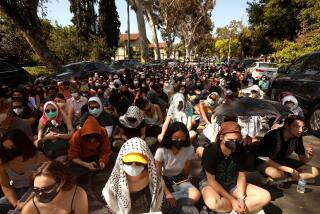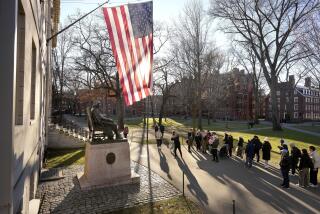Q&A: Education is key to combatting violence and extremism, says American University in Cairo’s new President Francis Ricciardone

Francis Ricciardone, president of the American University in Cairo
It’s based in a region beset by political and social instability, where Islamist extremists are intent on wreaking havoc. But the American University in Cairo has the power to tackle the challenges of violence and extremism, said the institution’s new president, Francis Ricciardone. That’s because it offers a cure to the malady: Education.
“What education does is empower,” said Ricciardone, a veteran of the Middle East who has worked for four decades in the region, including serving as U.S. ambassador to Egypt and Turkey. “It gives power to the powerless or those who have been deprived of it. The trick is to try and empower ordinary people to do great things.”
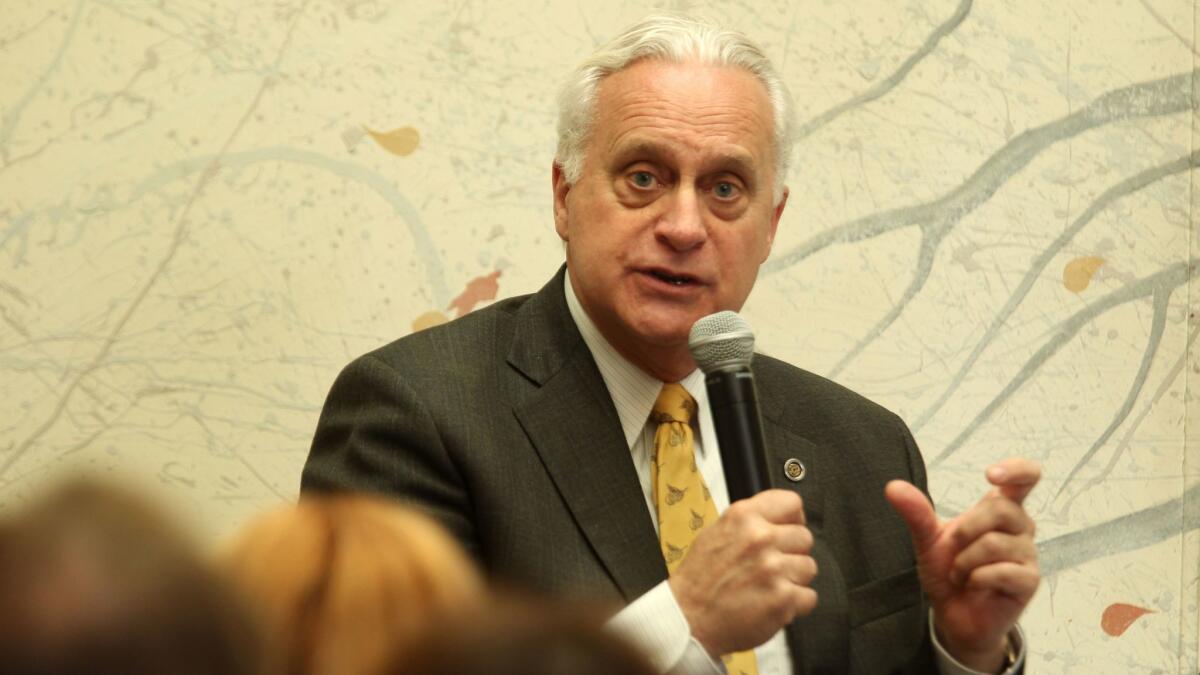
In a recent interview with The Times, the former career diplomat and public policy think-tank executive expanded on his views on how learning can help reverse negative attitudes and actions.
His comments have been edited for length and clarity.
How do you use education to tackle violence and extremism?
The primary way we do that is by bringing people together. When you bring people together, you humanize each other. You make it harder to deny the other or write off the other. The fundamental technique of the fanatics, in this case the violent so-called Islamist fanatics, is to dehumanize the other. That is clearly a very ignorant and belligerent sort of thing. It’s easier to do that if you’re in your own bubble, and that might be a bubble that’s fed by social media, but it is still a bubble.
What education does is bring human beings face to face. What the radicals try to do is separate. They speak of the world of Islam and the world of war.
Is there a particular curriculum that you have to use in order for this strategy to work?
[There’s] the simple act of coming together. You can pick the subject matter. When you get groups of young people together in a shared pursuit—it can be science, math, art, literature, sports—famously you build up an appreciation and a affinity for each other. Education of diverse groups of people together just works that incredible magic.
How effective can exchange programs be in terms of breaking down barriers and changing a culture of violence and hatred?
It’s very hard to hate people you know and have come to see in their complexity. It’s much easier to hate a cartoon cutout of the other, something that’s one-dimensional and subhuman or simply the other that is different.
An exciting thing that’s happening now, given the expense of overcoming geography, are programs, such as Soliya, that bring organized classrooms together, [virtually] modulated through teachers. So you could have a classroom in Egypt or Nigeria and a classroom in California. People meet that way and talk with each other. It’s structured. It might be around a theme. A teacher could put out a project on climate change or spread of disease or art, you name it. And to have these diverse groups of people comparing, contrasting, through the medium of electronics. It can have lasting impact.
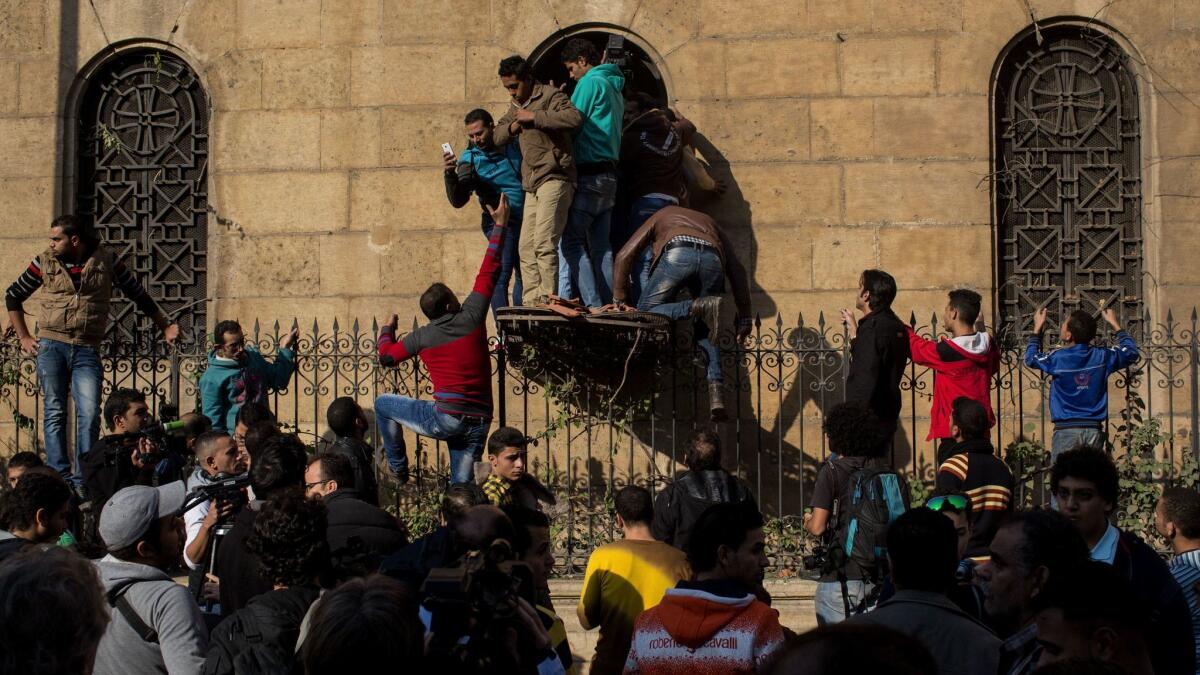
Do you have any concern that the incoming U.S. administration might put a stop to exchange programs or people might feel reluctant to participate in such programs?
I am concerned about the kind of nativist rhetoric that was flying around in the American political season. Some of it was alarming and not very becoming. We are a country of great diversity. You only have to go back a few generations and most of us came from somewhere else. And our ability to live with each other, prosper together, do great science together and make great art together and create music and movies together—that’s what makes America so strong.
I think it would be a great pity if we retreated from engagement with the world in business, in art, in entertainment, in science and also in statecraft, in diplomacy. I just don’t see how America can prosper and be America if we draw inward and we close our doors and we stop being interested in the outside world.
Has there been any backlash to the fact that American-style education is still being pushed in the Middle East given the current climate and times that we live in?
Maybe it sounds odd to Americans. The people of that region seem to admire and like so much about Americans and America. What they don’t like is a lot of the politics, our political positions on a lot of things, our resort to military solutions to problems. But they love American technology, science, art, entertainment, and very much education.
Some of the smaller but dynamic states of the [Persian] Gulf, like the United Arab Emirates, have brought in American universities to create instant American universities in their country.
Different American schools have had branch campuses opened in those smaller countries because those countries have invited them in and their young people want an American-style education. Not all want to leave their country and be far from their families to enjoy that. It might surprise Americans, but that’s the one area where they’re not saying Yankee go home. They’re saying Yankee come here, Yankee stay here.
What kind of impact has the recent violence in the Middle East had on the AUC’s ability to retain and attract foreign students?
The instability in the Middle East has had a dreadful impact. The violence has had the intended impact. The terrorists deliberately try to frighten people away. They seek to build walls between people. And maybe it’s for that reason that governments who do not want walls, who want to encourage foreigners to invest, foreigners to come as tourists, foreigners to study—that’s probably why we’ve got support from the government of Egypt.
How have you and the university managed to convince governments to embrace the notion of education as a means of changing the culture of violence and hatred?
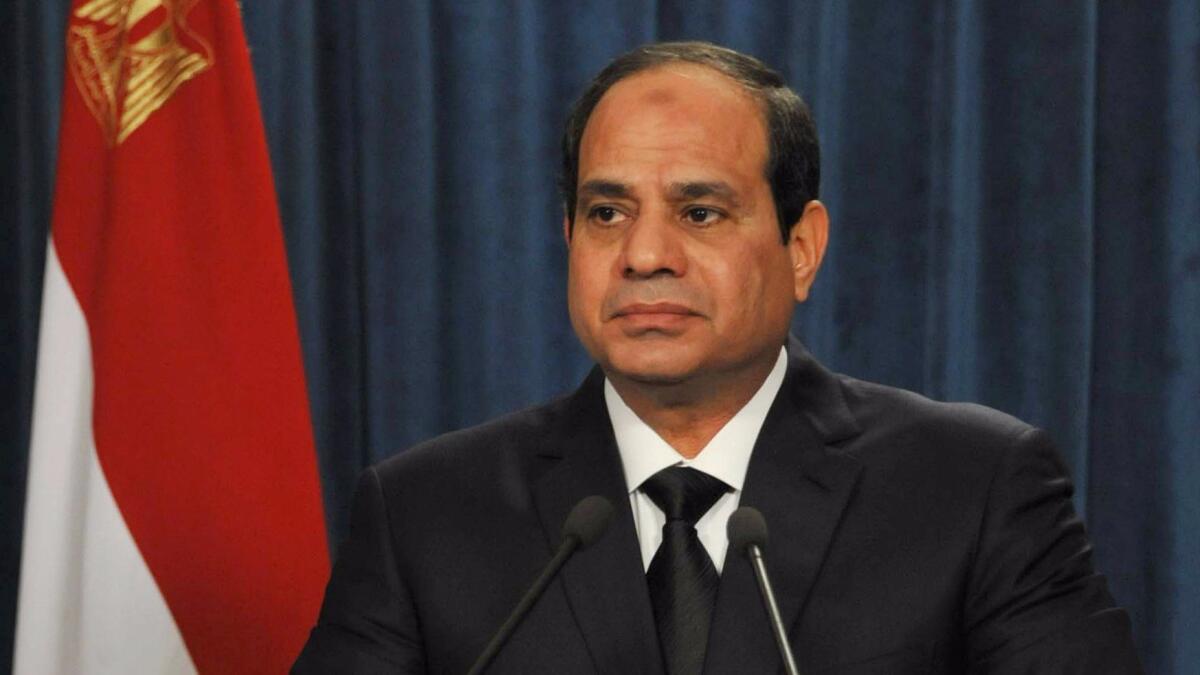
It’s not a question of persuading people in the region of the importance of it. The people in the region themselves are speaking out and saying we must do this. President Abdel Fattah Sisi of Egypt has given quite a bold set of speeches on the need for educational reform and particularly with respect to fanaticism. He has said there is no place for fanaticism in Islam and it is up to Muslim leaders and teachers themselves to get those extremist ideas out of the curriculum and out of their everyday thinking and speech. With Muslim leaders themselves saying this, it’s not a matter of us trying to persuade them. But I think we can work hand in hand to get the right positive sort of education—not just indoctrination, but education that will enable scientific and business advancements.
What’s your message to those thinking about doing an exchange program or attending AUC?
I would say particularly to any young American who is considering what to do about world problems, don’t go to a place like Egypt or another country that has a lot of problems despite the problems, go because of them. If you are a person with your life ahead of you and you want a life of meaningful service, choose the problem you want to solve, and then go to a place where you can dig in. Egypt is rich in human problems. If you want to study the problems of urbanization, whether environment or public health, how people live together, the allocation of scarce resources, come to a place like Egypt, come to AUC where the language of instruction is English, and dig in and enjoy it.
For more on global development news, see our Global Development Watch page, and follow me @AMSimmons1 on Twitter
ALSO
Q&A: Michael Fallon, the British defense secretary, talks terrorism and Trump
What Trump’s presidency could mean for refugees, foreign aid and women’s rights abroad
As striking Kenyan doctors dig in, patients are forgotten and a baby dies
More to Read
Start your day right
Sign up for Essential California for news, features and recommendations from the L.A. Times and beyond in your inbox six days a week.
You may occasionally receive promotional content from the Los Angeles Times.

